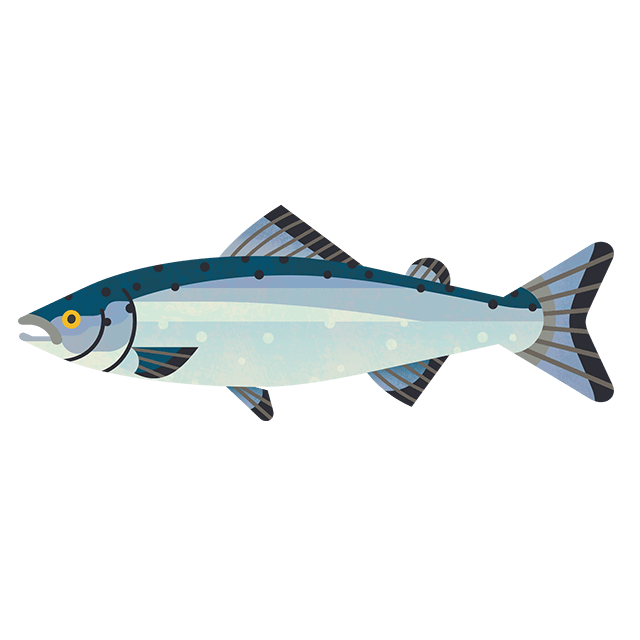
Great British Beach Clean results: Scotland
Beach litter dropping across the UK but wet wipes and plastic still polluting Scottish shores
PRESS RELEASE
- Marine Conservation Society reveals results of 2021 Great British Beach Clean
- 70% of Scottish beach litter collected made of plastic or polystyrene
- Wet wipes second most common litter item in Scotland
The Marine Conservation Society’s annual Great British Beach Clean, which took place from 17th - 26th September this year, saw 6,176 volunteers head outside to clear litter from their local streets, parks and over 55,000 metres of UK beaches.
A total of 5064.8kg of litter was collected and recorded over the week by dedicated volunteers and the results are in.
In Scotland, 15,575 metres of beach were cleared and surveyed by 1,531 volunteers. 592 bags of litter were filled, weighing 2,002kg.
In positive news, the average litter recorded per 100 metres is dropping year on year across the UK. Across the UK, an average of 385 items were found, dropping from averages of 425 in 2020, and 558 in 2019. In Scotland, 346 items were found on average per 100 metres this year, with the average dropping over the last five years*.
The drop in litter levels can at least in part be attributed to single-use plastics bans and charges put in place across the UK. Marine Conservation Society data supported Scotland’s banning of the manufacture and sale of plastic cotton bud sticks in October 2019.
An average of 10 plastic cotton bud sticks were recorded by volunteers in Scotland this year, dropping 50% from last year, where an average of 20 were recorded on Scottish beaches.
The carrier bag charge, which was increased to 10p in April 2021 in Scotland, is another policy which has likely had a positive impact on Scottish beach litter levels. An average of 3 single-use plastic shopping bags were recorded for every 100 metres of Scottish beach cleaned this year, steadily dropping from an all-time high of 17 recorded on Scotland’s coast in 2013.
Unfortunately, plastic pieces remain the most prevalent form of litter across UK beaches; 70% of litter collected at this year’s Great British Beach Clean in Scotland was made of plastic or polystyrene. An average of 101 plastic or polystyrene pieces were found for every 100 metres of Scottish beach surveyed.
The second most common litter item polluting Scottish beaches is wet wipes, many of which contain plastic.
Wet wipes have consistently featured in the top 10 most common litter items on Scottish beaches surveyed over the last 5 years. This form of litter, including other sewage-related items (like sanitary towels and nappies) isn’t a pandemic-related problem, but a chronic, long-term issue that needs to be tackled now.
Wet wipes often make their way to the coast through the sewer system. When they are wrongly flushed and sewers subsequently overflow or are misconnected, these items containing plastic end up on Scottish shores.
Catherine Gemmell, Scotland Conservation Officer at the Marine Conservation Society: “I can’t believe that in 2021 our volunteers are still having to pick up plastic-filled wet wipes on Scottish beaches. We know policies from government work, as evidenced by the drop in numbers of single-use plastic bags and cotton buds on beaches. But time is running out. We need action, now, from government and industry.
“Banning single-use plastic wet wipes is such an easy step to take in order to help achieve a circular economy and a society of reuse, repair and refill. The long-awaited Deposit Return Scheme for Scotland could be another groundbreaking policy which would have an instant impact on the amount of drinks litter we see on Scottish beaches every year. There’s no more time for delay – plastic pollution must be tackled now, and it’s time for the Scottish Government to step up.”
With so much beach litter being made from plastic, the Marine Conservation Society is continuing its campaigning for a Circular Economy Bill in Scotland which would phase out the manufacture and sale of plastic products across the board and move Scotland to a society of reuse, repair and refill.
Top five most common litter items on Scottish beaches
- Plastic and polystyrene pieces (100.8)
- Wet wipes (25)
- Crisp and sweet packets, lolly sticks etc (19.4)
- String/cord (18.5)
- Glass items (13.1)
Lizzie Prior, Beachwatch Manager at the Marine Conservation Society: “The ongoing downward trend we’re seeing in litter levels on UK beaches is a positive sign that the actions we’re taking at a personal, local and national level are working. But we can’t sit back and relax, now is the time for even more ambitious action.”
The Marine Conservation Society included PPE items on its survey form for the first time this year*, providing a baseline from which to understand the impact and presence of face masks and gloves into the future. Levels of PPE found this year were similar to 2020, when masks were made mandatory across the UK. 32% of UK beaches cleaned found PPE litter though masks ranked 59 out of 121 for most common litter items. Inland, for the charity’s Source to Sea Litter Quest, 80% of litter picks found PPE in 2021, in comparison to 69% found in 2020.
Read more about the Great British Beach Clean, and the Marine Conservation Society’s year-round Beachwatch programme on the charity’s website: www.mcsuk.org.
-Ends-


